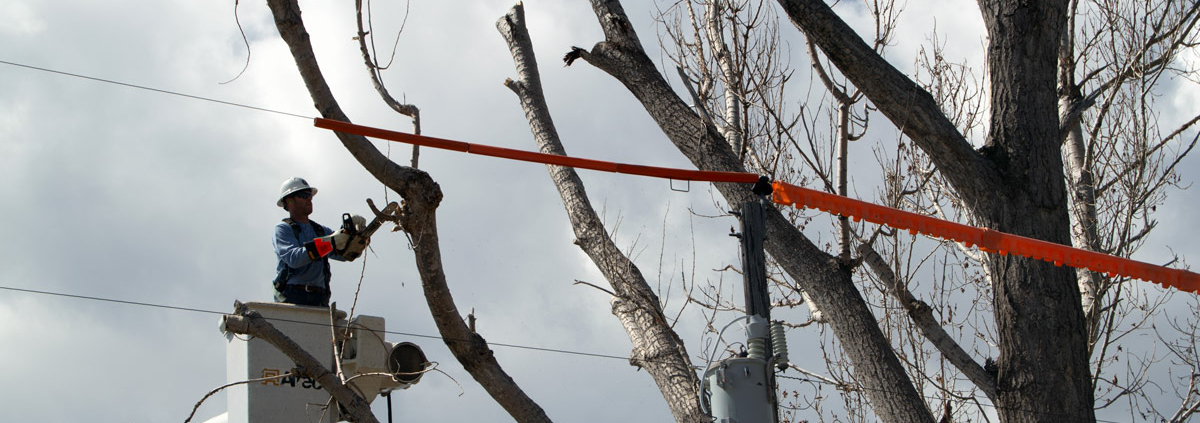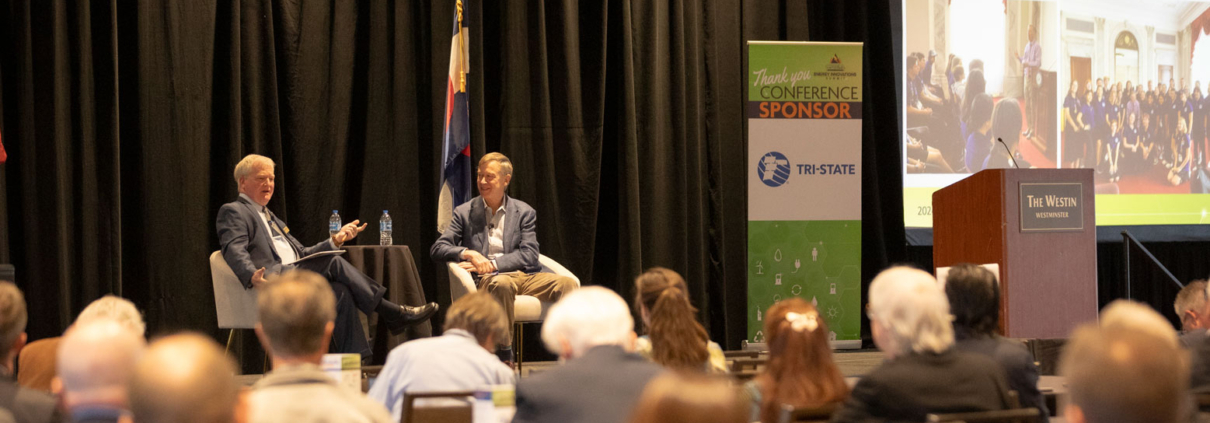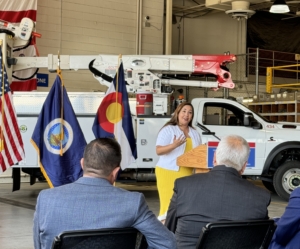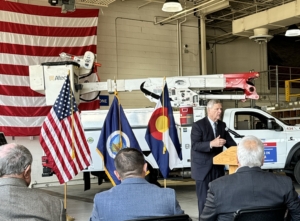Executive Director
Executive Director
Colorado Rural Electric Association
Denver, CO
Salary range to start: $325,000 – $425,000
Please send your resume and cover letter to boardpresident@coloradorea.org
all submissions are confidential
Application deadline: May 15, 2025
—
Statewide Association Seeks Executive Director
The board of directors serving the Colorado Rural Electric Association based in Denver, Colorado, seeks a member focused leader to become the next executive director of the association.
CREA’s executive director is a leader responsible for guiding the association towards excellence in service and member collaboration. The executive director exemplifies the cooperative principles and CREA’s core values and mission to enhance and advance the interests of its member electric cooperatives through a united effort. Reporting to a 25-member board of directors, the executive director is responsible for leading employees to support its 21-member distribution cooperatives and one generation and transmission cooperative.
The ideal candidate will continue the association’s established and successful history of building and nurturing relationships with various stakeholders — including local electric distribution cooperatives, lawmakers, and regulatory agencies.
This position requires a dynamic leader with a strategic mindset, exceptional communication and interpersonal skills, and a commitment to fostering collaboration within the organization and with external partners.
About CREA
The Colorado Rural Electric Association is a not-for-profit, member-driven organization that represents and advocates for 21 distribution cooperatives and one Colorado-based generation and transmission association. Colorado’s electric cooperatives serve more than 1 million consumer-members living across more than 70% of the state’s landmass.
For 80 years, CREA has functioned as an essential resource for the state’s electric cooperatives and focuses on providing legislative advocacy, communications support, safety training, and education services.
CREA is positioned to continue its active participation in state and federal legislative processes and to advocate for the interests of its member electric cooperatives, ensuring Colorado’s co-op communities have a voice in influencing energy policy.
Beyond its advocacy efforts, CREA prioritizes safety and loss control training for its members and serves as the publisher of Colorado Country Life magazine — the state’s largest-circulation publication, reaching more than 175,000 cooperative members and legislators each month.
By prioritizing member service and promoting cooperative principles, the statewide association plays a pivotal role in ensuring that Coloradans who are served by an electric cooperative have access to reliable, affordable, safe, and sustainable electric service.
At CREA, the executive director:
- Leads the organization in achieving its strategic goals and objectives.
- Cultivates positive relationships with the board, member cooperatives, staff, and other stakeholders.
- Shapes an organizational culture that empowers CREA teams to deliver outstanding service.
- Continues a culture of excellence in member engagement and fiscal strength.
- Develops and implements a compelling vision and strategic plan aligned with the board of directors’ long-term goals.
- Advocates for the electric cooperative industry at state and national levels.
- Works toward uniting the diverse association membership.
- Manages day-to-day operations and activities of the association.
- Manages the operations of the association in accordance with the viewpoints, objectives, and policies of the board of directors.
- Frequently travels throughout Colorado and other states as necessary.
The ideal candidate will have verifiable experience in the following competencies:
- Change Leadership and Risk Management: Proactively identifies, navigates, and manages organizational change and risk.
- Innovation and Continuous Improvement: Encourages creative thinking and champions opportunities for innovation and process enhancement.
- Strategic Vision: Maintains a long-term, big-picture perspective that anticipates future needs of the association and its members.
- Member-Centric Focus: Champions a culture that prioritizes and responds to the needs of its member cooperatives.
- Analytical Decision Making: Applies systematic, conceptual, and data-informed thinking to develop effective solutions that align with strategic goals.
- Resilience and Adaptability: Remains composed and flexible in the face of challenges, ambiguity, or rapid change.
- Financial Acumen: Understands budgeting, financial risks, and opportunities to support sound fiscal decision-making.
- Effective Communication: Communicates clearly and actively listens to foster mutual understanding; strong presentation skills are a plus.
- Inspirational Leadership: Motivates, influences, and aligns others with the organization’s mission, vision, and values.
- Organizational Awareness: Understands the organization’s structure, culture, and dynamics to navigate effectively and influence outcomes.
- Team and Relationship Building: Builds strong, collaborative teams and cultivates positive working relationships across the organization.
- Integrity and Courage: Acts with integrity, consistency, and professionalism, even in the face of difficult decisions.
The following qualifications will help the ideal candidate stand out:
- An advanced degree or certification in law, political science, management, finance, economics, or engineering.
- Working knowledge of electric utility operations, best practices for industry safety efforts, implications of local and regional power supply, and electric cooperative needs.
Benefits
- Pension and 401(k) plan
- Medical, dental, and prescription drug insurance
- Long-term disability insurance
- Life insurance
- Supplemental AD&D insurance
- Business travel accident insurance
- Education assistance plan
- Section 125 plan
- Health savings account
- Seven paid holidays and two personal days
- Vacation and sick leave
- Company vehicle
Colorado Rural Electric Association is an equal opportunity employer. CREA prohibits unlawful discrimination or harassment on the basis of race, color, religion, religious creed, national origin, ancestry, age, sex, sexual orientation, gender, gender identity, physical disability, mental disability, pregnancy, medical condition, genetic information, marital status, citizenship status, military status, veteran status, vaccination status, political belief, or any other characteristic to the extent protected by federal, state, or local laws.

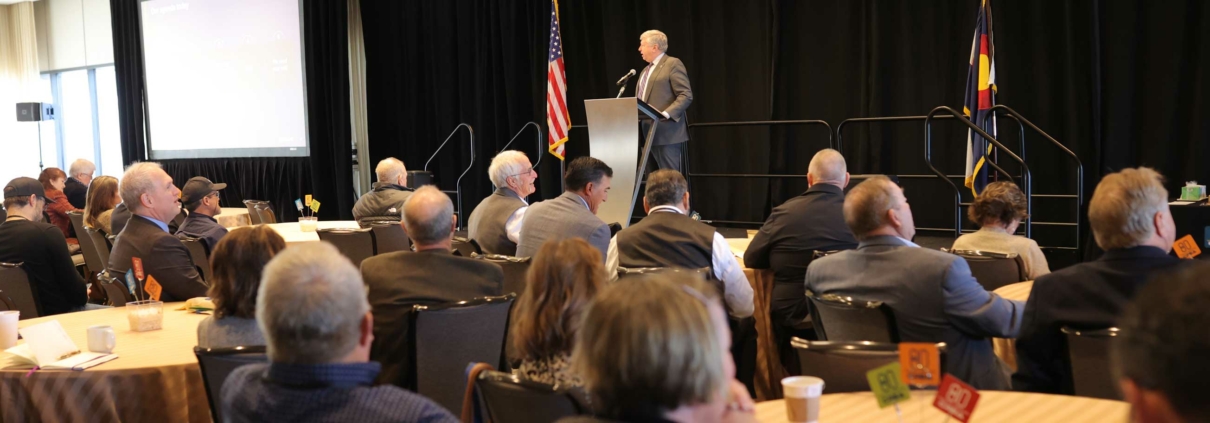 2025
2025